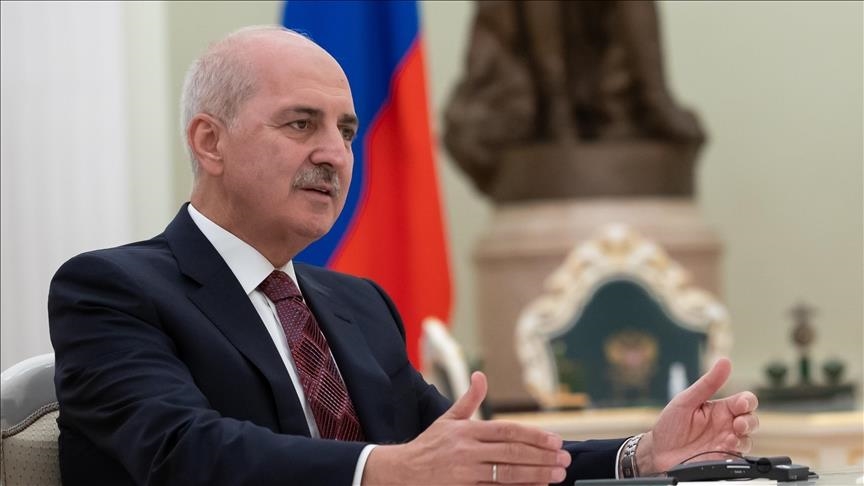ANKARA
Turkish parliament speaker Numan Kurtulmus highlighted Ankara’s growing international influence on Friday, calling for a new global system during his return flight from an official visit to Russia.
Speaking to journalists on his way back to Türkiye from Moscow, where he met with high-level officials including President Vladimir Putin, Kurtulmus highlighted Russia’s growing interest in Türkiye, which he attributed to Ankara’s “principled, multilateral and peaceful foreign policy.”
Kurtulmus underlined his country’s efforts in mediating an end to the Russia-Ukraine war, noting that the two sides had been close to signing an agreement in 2022 during talks in Istanbul.
He emphasized Türkiye’s enhanced credibility on the global stage due to its “problem-solving” approach and “principled” stance in international affairs.
New global system
Kurtulmus also criticized Israel’s actions in Gaza, which he said were “destroying the rules-based international system” while Western countries watched and even applauded.
He emphasized the need for a new global order based on “equality of people in creation and equality of states in sovereignty.”
Referencing Türkiye’s previous criticisms of the UN structure, he suggested that recent events had validated this stance.
He also voiced support for efforts to strengthen the BRICS group of emerging economies as a counterbalance to maintain world peace, while emphasizing that Türkiye does not view its relationships with different blocs as mutually exclusive.
Unity against Israel
Kurtulmus stressed the importance of regional unity in the face of Israel’s actions.
Asserting that Israeli Prime Minister Netanyahu thinks Middle Eastern nations must be “slaves to Israel,” Kurtulmus urged that “the peoples of the Middle East must move towards unification and integration if they do not consent to be enslaved.”
He called for the swift resolution of issues between Türkiye and neighboring Syria and underlined the need for close dialogue between the two nations, beyond mere “normalization.”

